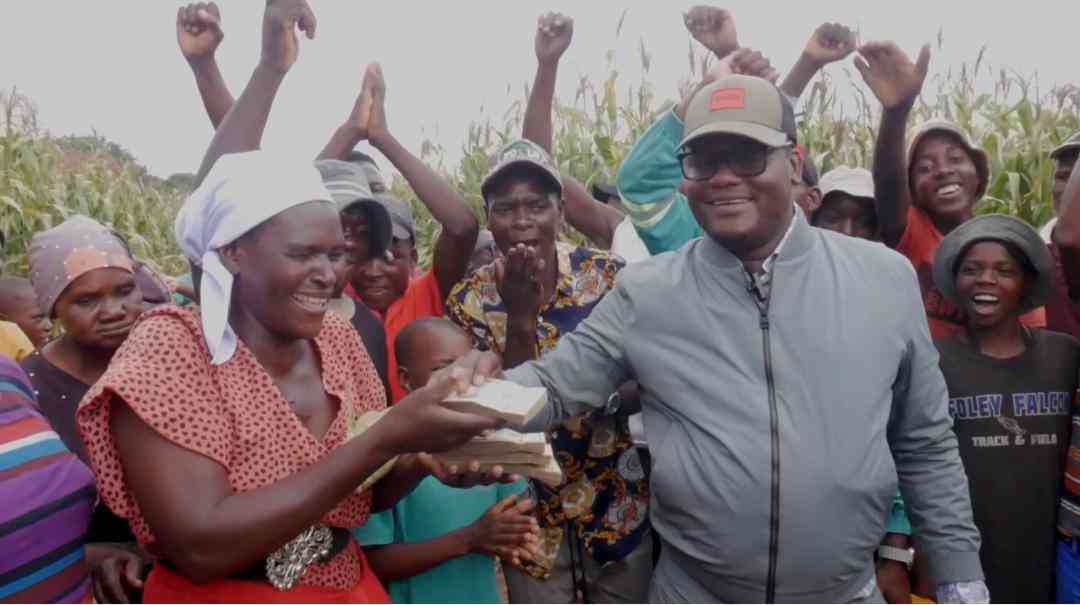
DAVHE Village Business Unit (VBU) has become a symbol of transformation and hope in the drought-prone region of Buhera.
With the Presidential Borehole Scheme (PBS), the Davhe VBU recently achieved a remarkable milestone: producing 10 tonnes of maize.
Under the leadership of President Emmerson Mnangagwa, the PBS aims to revolutionize agriculture by ensuring reliable water supplies through boreholes. With Davhe emerging as a shining example of its potential to address food insecurity, this initiative has led to numerous Village Business Units throughout the country.
Davhe's borehole has become more than just a source of water - it has sparked an agricultural revolution. In order to boost productivity, the VBU has adopted modern farming practices such as crop rotation. In a place where such yields were once unimaginable, crops such as maize, tomatoes, cabbages, and other vegetables grow readily throughout the year.
For an impressive US$4,000, the unit sold all 10 tonnes of maize to Prevail Group International (PGI).
As a key partner in the PBS, PGI provides farmers with access to markets and fosters sustainable livelihoods.
President Mnangagwa's PBS has transformed the agricultural landscape in Buhera, according to PGI Chairperson Paul Tungwarara. Communities in drought-prone areas are now achieving surplus harvests, enhancing food security, and improving their quality of life.”
The success is evident in the numbers: over 86 small-scale farmers benefited directly from this year’s maize harvest. For many, the PBS has been nothing short of life-changing.
- Zanu PF commissions borehole twice... as ruling party unleashes Mohadi on village heads
- Zinwa circles fret over "shoddy" presidential boreholes
- Prevail Group to undertake massive borehole drilling scheme
- Presidential solar scheme on cards
Keep Reading
Maria Nyamunda, a mother of three, shared how the initiative has improved her life.
“Before the VBU, we relied on unpredictable rains, and most of our crops failed,” Nyamunda explained.
“Thanks to the borehole and the support of the VBU, I can now farm all year round. With the money from the maize harvest, I’m able to send my children to school and buy groceries for my family.”
Similarly, Tatenda Mhiripiri, another beneficiary, highlighted how the program has empowered women in the community.
“This initiative has given women like me financial independence,” Mhiripiri said.
“I no longer have to worry about feeding my family, and I’ve even started a small poultry business with the income from the VBU.”
The achievements of the Davhe VBU underscore the transformative potential of the PBS. The initiative offers a replicable model for other drought-affected areas, bridging the gap between challenges and opportunities.
As projects like Davhe continue to flourish, Zimbabwe edges closer to addressing food insecurity and poverty in its most vulnerable communities. For farmers in Buhera and beyond, initiatives like the PBS are turning arid lands into productive fields, bringing renewed hope and opportunity.
Zimbabwe's agricultural future could be redefined with sustained innovation and support through the Presidential Borehole Scheme, proving that prosperity can be achieved even in harsh conditions.









